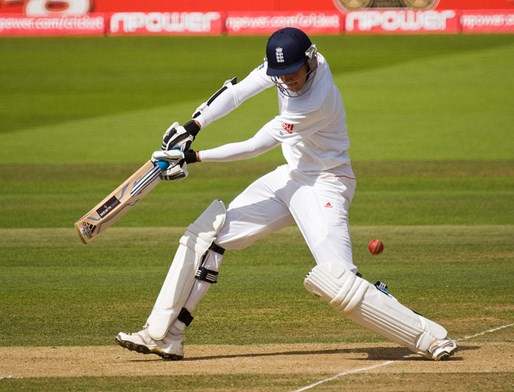Students Booting Football into Touch
As recent Southampton Solent University Sports Writing graduate Michael Gales suggests, “Due to cricket’s ability to constantly reinvent itself, from the Kerry Packer days to the current Twenty20 format, cricket is an increasingly valid and undeniable tool for understanding global sport.”
Although Higher Education and cricket have complemented each other through an emphasis on playing skills and fitness, interest in, and the investigation of, cricket now goes beyond the existing Centres of Excellence. It extends into lecture and seminar programmes in a range of universities across the United Kingdom from Ulster to Stirling, Leeds Metropolitan to Worcester, at both undergraduate and postgraduate levels. However, these courses are not always easy to locate as they may be classified under a range of headings including Sport, Culture, Identity, Humanities, Sports Writing, Journalism, Globalization, and Events Management. Meanwhile, at the University of Huddersfield, a Cricket Centre has been established. “Our Cricket Research Centre has been a big hit in doing something novel, interesting and attracting new students,” says Peter Davies, its Director. “We have guest lectures and seminars and currently have five postgraduate students. And the only other one in the world is in Barbados!”
The university sector’s recognition of the value and importance of cricket in understanding contemporary society stems from the often-used phrase of CLR James, one-time cricketer, journalist and social commentator - “What do they know of cricket who only cricket know?” Although his observations originate from his personal experiences in Trinidad, until his death he continued to proclaim that an understanding of cricket enabled the individual to appreciate life beyond the cricket field.
John May Director of the BA (Hons) Sports Writing at Southampton Solent acknowledges these sentiments, whilst also noting cricket’s new format. “Cricket’s history, development, class structure and colonial overtones has been a popular field of study, but the rapid rise of Twenty20 Cricket and with it the globalisation and increased commercialisation has brought it to the forefront of student sporting consciousness.”
When cricket issues are the focus of study, students engage in discussion on key themes, undertake case studies on major trends in the game, deliver presentations as well as writing articles, reviews, essays and dissertations. As a dissertation supervisor, course designer and lecturer, I have overseen some very impressive work on the commercialisation of cricket and the future of the four-day game by both male and female students. In many cases they have undertaken rigorous research and conducted interviews with leading administrators and eminent cricket writers. Interestingly, as John May notes, cricket-based themes have inspired students to delve deeper into the game. “I suppose the best indicator is that almost as many of our third year students chose cricket as a sport to base their dissertations on instead of football and the Premier League.”
With cricket now played in more countries, the focus of study has widened, increasing the attraction for students from ethnic minority backgrounds, as well as those from overseas. Students on programmes to which I contribute at Southampton Solent look at the role of cricket in Afghanistan as a nation-building tool, the place of the game in the Caribbean as a means of retaining and projecting West Indian unity, and the importance of cricket in India in solidifying national unity in a state marked by economic inequality and religious and ethnic divisions. Although the game is not global it can begin to challenge the overriding power of football. As Michael Gales, now employed by GX Global Media remarks, “The sporting (non-sport science) curriculum is bombarded with the study of football, yet in my opinion, cricket is more of a mirror to society than football.”
For those studying cricket-based modules the employment opportunities are wide-ranging, even today. The skills gained can be taken into the classroom, sports administration and management, journalism and Higher Education, and all graduates hopefully carry with them the message that cricket plays a critical role in maintaining social cohesion.
Dr. Russell Holden is Director of In the Zone Sport and Politics Consultancy






